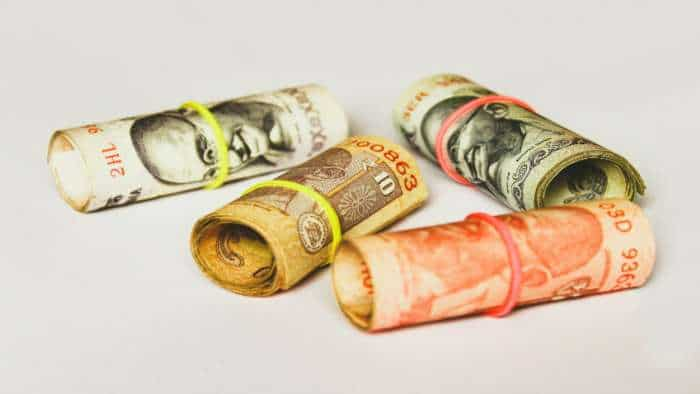Despite 1.2 billion population, why does India struggle to win Olympic medals?

The Indian contingent to Rio Olympics 2016 was made up of 118 players competing for 15 disciplines. At the last tally, we returned home with two medals, one silver, and one bronze.
Why does India, a country of 1.2 billion people, struggle to win medals in Olympic games? Now that I've baited you, here are a couple of charts.
In the first chart, I took the top - 25 countries by count of weighted medals (gold = 4, silver = 2 and bronze = 1) in 2012, and plotted them by their GDP. Surprisingly linear fit. China, Russia, and Great Britain do better than the others. Japan, Canada, Brazil do worse than the others. But more or less, the number of medals you win is proportional to your country's GDP.

Learning #1: You have to be a large GDP country to win a large number of medals. That is, countries with institutions for sport (and not just individuals with talent) win medals.
In the second chart, I took all the countries that won a medal in 2012 (84), excluded the top-8 by GDP, plotted weighted medals against their GDP, and did a linear best-fit. South Korea, Australia, Netherlands do much better than others. But reasonably large GDP countries like India and Indonesia do terrible and are unable to take off from the ground.

Learning #2: Large GDP is necessary but not sufficient. You also need a high per capita GDP before you can start committing budgets to sports institutions that will win you medals.
But what about all those small GDP countries on the left beating the curve massively -- Hungary, Ukraine, Kazakhstan, Czech Republic, Romania, Cuba, North Korea. Yes, your guess is as good as mine.
Learning #3: Communist-leaning countries tend to beat the curve. And they do this by institution building for one or very few sports.
But what about Jamaica, Kenya, and Iran? They are not communist, yet how are they beating the curve? These countries are rare exceptions of singular focus and institution building around one sport (track, long distance, and wrestling, respectively). Read this New York Times article on how Jamaica does it.
Learning #4: Singular focus and institution building around one sport.
So what can India do to win medals?
1. Become a large GDP country (we are already there)
2. Increase per capita GDP (another 20 years)
3. Become an authoritarian country (er, sorry, no!)
4. Singular focus on one sport (er, maybe not)
So our only option is #2. If you are doing anything that helps us increase our per capita, then you are helping India win Olympic medals (in the future). Think about it -- Olympics is more a proxy for Human Development Index (HDI) of a country than it is for raw talent in that country. By 2050, we will be a high per capita GDP country and we will be in top-10 in the medals tally. Till that happens, we need to Keep Calm and Carry On.
Zishaan Hayath, the author of this post, is the co-founder of Toppr.com. You can read the original post here.
Get Latest Business News, Stock Market Updates and Videos; Check your tax outgo through Income Tax Calculator and save money through our Personal Finance coverage. Check Business Breaking News Live on Zee Business Twitter and Facebook. Subscribe on YouTube.
RECOMMENDED STORIES

Tamil Nadu Weather Alert: Chennai may receive heavy rains; IMD issues yellow & orange alerts in these districts

SIP vs PPF: How much corpus you can build in 15 years by investing Rs 1.5 lakh per year? Understand through calculations

SIP+SWP: Rs 10,000 monthly SIP for 20 years, Rs 25 lakh lump sum investment, then Rs 2.15 lakh monthly income for 25 years; see expert calculations

Top 7 Mutual Funds With Highest Returns in 10 Years: Rs 10 lakh investment in No 1 scheme has turned into Rs 79,46,160 in 10 years

SBI Senior Citizen Latest FD Rates: What senior citizens can get on Rs 7 lakh, Rs 14 lakh, and Rs 21 lakh investments in Amrit Vrishti, 1-, 3-, and 5-year fixed deposits
03:21 PM IST










 P V Sindhu's cash rewards cross Rs 4 crore for winning silver at Rio Olympics
P V Sindhu's cash rewards cross Rs 4 crore for winning silver at Rio Olympics Sakshi Malik becomes 'Gazetted officer' and gets a Zone of her 'liking' from Indian Railways for winning medal at Rio
Sakshi Malik becomes 'Gazetted officer' and gets a Zone of her 'liking' from Indian Railways for winning medal at Rio  Infographic: India's 64 men and 54 women athletes at Rio Olympics
Infographic: India's 64 men and 54 women athletes at Rio Olympics Indian Railways: Biggest contributor to Rio Olympics contingent; complete list of 35 sportspersons
Indian Railways: Biggest contributor to Rio Olympics contingent; complete list of 35 sportspersons From inspiration to struggles and joy: Brands make a play for Rio Olympics
From inspiration to struggles and joy: Brands make a play for Rio Olympics